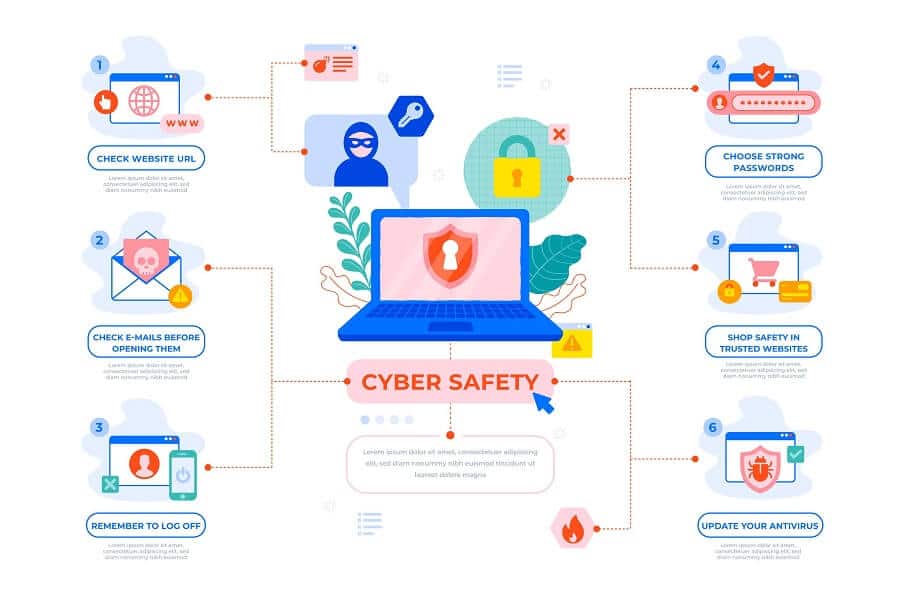Avoid Cyber Fraud When Buying a Home
Buying your new home can involve many risks—including fraud. Online real estate fraud has exploded over the past couple of years. Knowing how common scams work can help you avoid falling for them. Let’s peek into the seedy world of con artists and find out how criminals might try to fool you.
Wire Transfer Fraud
Imagine you’re about to close on your new home. Your title company emails you, asking you to wire your down payment to a certain bank account. Not wanting to cause any delays, you pay the money. But when you call your title agent, they say they never sent you an email or received any funds. You’ve just fallen victim to wire transfer fraud.
Incidents of wire transfer fraud are skyrocketing. First-time homebuyers can be particularly vulnerable to bogus payment requests. But the worst part is that there’s no compensation or protection for fraud victims. Law enforcement or your bank’s fraud coverage may recover a fraction of the money but this is unlikely. This is why you must be cautious of wire transfer fraud.
In most cases, the scammer starts by hacking an email account involved in the home sale. They get login details by using malicious software or phishing emails—fake emails where they pretend to be someone you trust. The breach can happen at any link in the communication chain. The hacker won’t care whether the account belongs to you, the title company, a real estate agent, or the home’s owner. What matters is that they can now track your communications and jump in when you’re preparing to put money down.
The scammer will generally send you an email instructing you to wire your down payment to their bank account. This email won’t be an easily identifiable spam message. With potentially hundreds of thousands on the line, wire transfer scammers will go to great lengths to fool you. Their fake emails can appear deceptively authentic by mimicking your title company’s email addresses and graphic designs. Particularly detail-oriented fraudsters may copy entire websites and set up fake phone lines.
Title Fraud
You may also run into title or deed fraud. Luckily, this kind of scam is rare, but you should still be aware of it. In a title fraud, the criminal first steals an actual homeowner’s identity, acquiring their SSN, birth date, and other details. With this information, they forge a title to a house and open new bank accounts and phone numbers. They’ll likely also make a fake driver’s license with their picture to “prove” their identity.
With the fake title, the criminal will try to sell you the property through a seemingly normal process. Of course, a deal with the scammer won’t make you the home’s owner. If you fall for this fraud, you may get a nasty surprise when the house’s actual owner asks why you’re trying to carry furniture into their home.
PROTECT YOURSELF FROM HACKERS
Fortunately, you can avoid these scams with basic cyber security practices. Here are six things you can do to protect yourself from fraud:
- Secure your email and devices. Set strong passwords and regularly update your firewall, antivirus, and other security software.
- Keep your eyes open for suspicious details. Compare the email addresses and phone numbers that have contacted you to those of your title company. You may be able to spot differences that reveal the scammer.
- Confirm all payment details. Call every agent or company asking you to wire money and confirm the payment instructions by talking to a real person.
- Never email sensitive details. Share financial and personal information over the phone or, preferably, face-to-face.
- Trust your gut. If something feels off, contact another reliable party to check whether everything is as it should be.
- Get title insurance. Title insurance agencies can protect your ownership rights by ensuring you’re buying from the legal owners, making it less likely you’ll fall for fraud. They can also discover outstanding taxes, liens, or other liabilities with the house.
For reliable title insurance in the Rio Grande Valley, contact:
Sierra Title, www.sierratitle.com
Valley Land Title Company, www.valleylandtitleco.com
New Homes Guide Magazine
The latest new home trends, up-and-coming neighborhoods, and more.
© RGV New Homes Guide, 2022. Unauthorized use and/or duplication of this material without express and written permission from this site’s author and/or owner is strictly prohibited. Excerpts and links may be used, provided that full and clear credit is given to RGV New Homes Guide with appropriate and specific direction to the original content.








